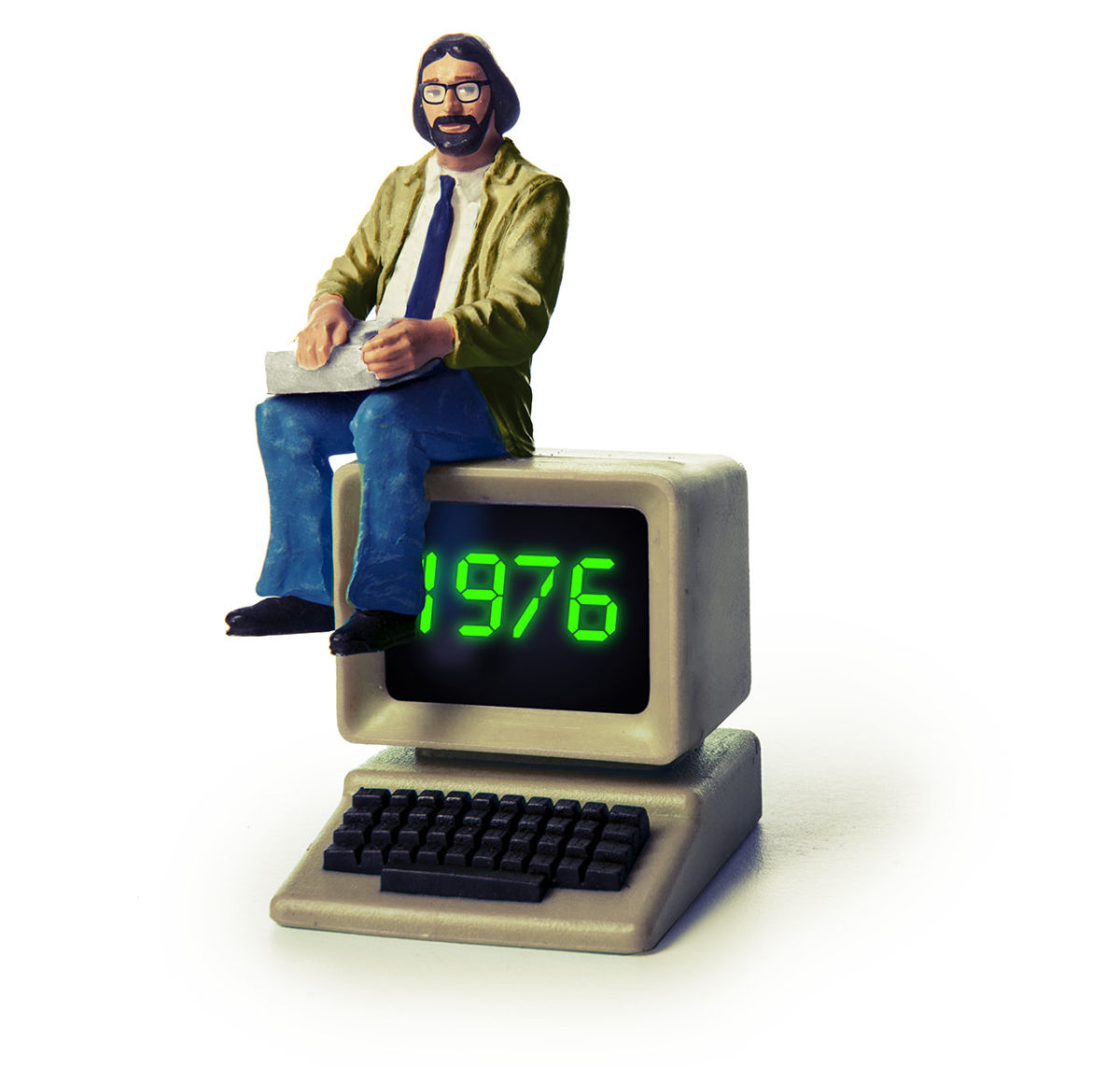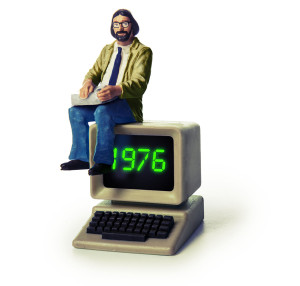The Future Is Now
A look back at what personal computing’s earliest adopters thought lay ahead for the PC.

A look back at what personal computing’s earliest adopters thought lay ahead for the PC.
Back when mainframes were mainstream, Professor Allen Katz brought a group of amateur electronics hobbyists to campus for the country’s first personal computer show. In March, the Trenton Computer Festival—now the longest continuously running event of its kind—celebrates its 40th anniversary.
 TCF’s popularity has waxed and waned through the years as the personal computer evolved from exotic hobby to necessity to potential artifact. But 40 years ago PCs were still the “new toy,” says Katz, and a festival devoted to them garnered media coverage from the likes of Playboy and The New York Times. The Times reporter asked those first festivalgoers to share their predictions for the future of personal computing. We took a look at what they got right.
TCF’s popularity has waxed and waned through the years as the personal computer evolved from exotic hobby to necessity to potential artifact. But 40 years ago PCs were still the “new toy,” says Katz, and a festival devoted to them garnered media coverage from the likes of Playboy and The New York Times. The Times reporter asked those first festivalgoers to share their predictions for the future of personal computing. We took a look at what they got right.
Prediction: PCs will tell us who’s dropping by. We’ll just program our friends’ heights and waist sizes into the system, and computer-controlled photocells will crosscheck that data against the dimensions of whomever is ringing our doorbell.
Reality? Yes, only without the awkwardness of asking for your friends’ measurements. PC-based video surveillance systems are commonplace, part of the nearly $21 billion that Americans spent on home security systems in 2011.
Prediction: Get ready for leisure time galore, courtesy of computer-operated remote-control lawn mowers and vacuum cleaners.
Reality? Sort of. Robotic vacuum cleaners are a reality, and can be procured for under $100. A robot lawn mower is a steeper investment. The LawnBott LB200EL, which can be controlled with your iPhone, retails for the low, low price of $4,199.
Prediction: Computers will track our household budgets and help us prepare tax returns.
Reality? You bet. According to the IRS, 27 million taxpayers used software products to
prepare and e-file returns in 2013.
Prediction: Cheap computers, linked to a television and an electric typewriter, will expose households to “new kinds of games, educational materials, and artistic media.”
Reality? Yes, albeit without the typewriters. In 2013, the U.S. Census reported that 84 percent of households owned a computer and 64 percent owned a handheld computing device (such as a smartphone). Personal computing devices have become the ultimate entertainment medium: A 2013 study revealed that U.S. adults spent more time on digital devices than watching television.
Posted on February 20, 2015

